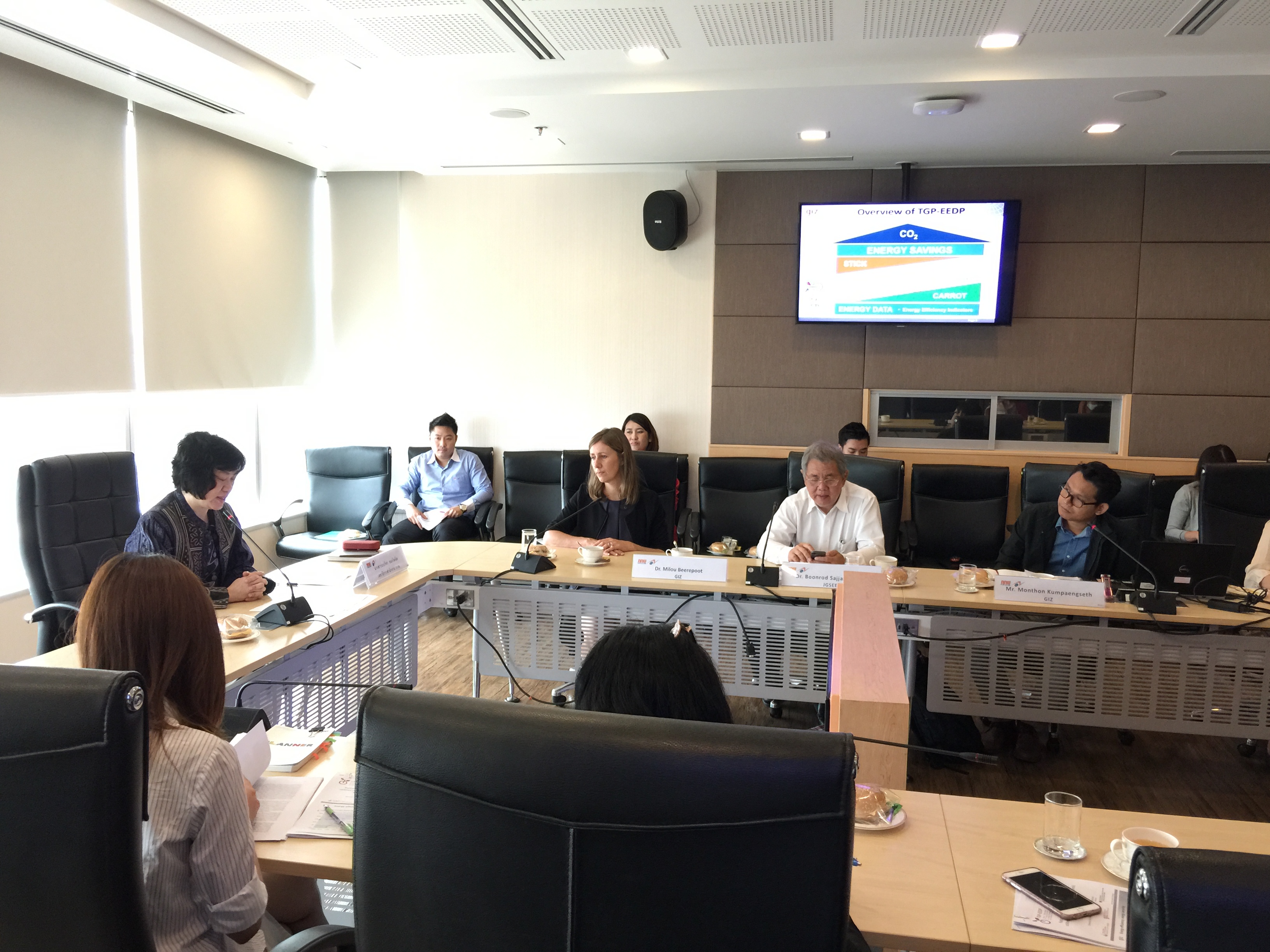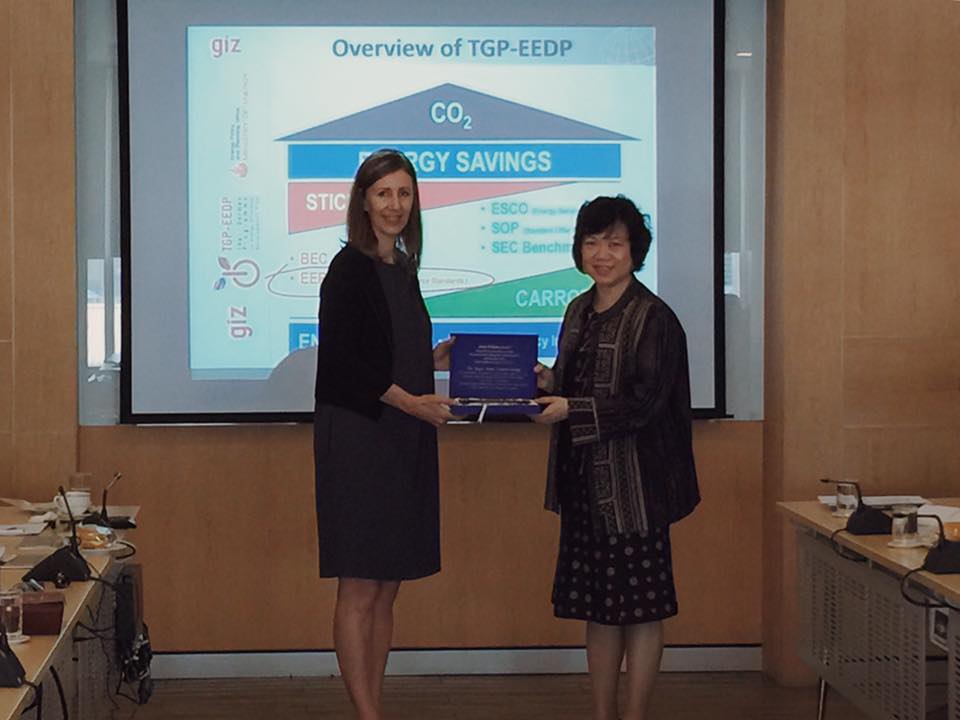Background Information: EEDP and EERS
In 2010, the Energy Policy and Planning Office (EPPO), assigned by the Ministry of Energy, formulated the long term 20-year Energy Efficiency Development Plan (EEDP) which aims to reduce energy intensity (energy consumption/GDP) by 25% (compared with that in 2010), or equivalent to the reduction of final energy consumption by nearly one-quarter (23.5%) in 2030. According to this plan, Energy Efficiency Resource Standards (EERS) for large energy businesses is one of the important measures for establishing standards for electricity utilities to assist consumers in the implementation of energy efficiency in order to reduce consumption It means that large-scale energy businesses, e.g. those in the electricity, oil and natural gas industries will be required to implement energy conservation measures to encourage their customers to reduce energy use by a specified minimum standard (or Energy Efficiency Resource Standards: EERS). The participating agencies will include ERC, EPPO, DEDE, EGAT, MEA, PEA, and in the longer term also PTT. Furthermore in 2014 the EEDP has been updated and integrated with other energy plans such as Power Development Plan, Alternative Energy Development Plan, etc. The revised EEDP (2015-2036) aims to reduce energy intensity by 30% in 2036 (compared with that in 2010). EERS, as one of the measures in the compulsory program, is expected to save energy by about 500 ktoe.

In fact many countries around the world have already implemented EERS schemes on a national or regional level (e.g. UK, France, Italy, Denmark, several US States, China, etc.) but sometimes in different terms basically describing the same type of policy instrument e.g. “Energy Saving Obligation”, “Energy Efficiency Commitment”, etc. The elaboration of an EERS scheme can be different per country in terms of target groups, saving targets, obligated parties, etc. Therefore, in order to achieve a common understanding of EERS and transfer knowledge and experience about international practices and experiences, the TGP-EEDP programme in collaboration with the Office of Energy Regulatory Commission (ERC) is organising a roundtable meeting on the topic of EERS on 27th August 2015.
Objectives of the roundtable meeting on EERS:
1) To introduce, share knowledge and understanding of EERS measure and the importance of EERS to the energy conservation in Thailand;
2) To present a status on international practices and experiences in the implementation of EERS;
3) To provide a platform to discuss the policy framework of EERS in Thailand with related stakeholders
Documents for download
1. Agenda
2. Introduction of TGP-EEDP and objectives of the EERS seminar
3. What is EERS?, its basic design features and international implementation status
4. Introduction and understanding of EERS in the Thai context and EERS study to support EEDP in Thailand
5. Possible EERS design options in Thailand

